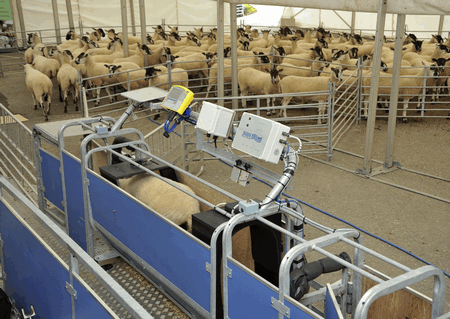EID ‘as concerning as bluetongue and TB’ Welsh farmers say

Welsh farmers are as concerned about electronic identification of sheep as they are about bluetongue and bovine TB, according to the country’s farming leaders.
The Farmers Union of Wales said the topic is high on the agenda on the summer show circuit, with members keen to learn how to sign the union’s online petition opposing the introduction of compulsory EID in January.
“The majority of farmers visiting our stands at shows dread the imposition of what they see as an unworkable and totally unfair new tax on their already inadequate incomes,” Peter Roberts, FUW spokesman, said.
Many farmers were aware that Derek Morgan, FUW hill farming committee chairman, had used EID on some sheep at his farm in Powys and proved it to be uneconomical on large commercial flocks, he added. This experience and evidence from many trials had convinced the union that it should continue to resist EU plans.

Ed Bailey, NFU Cymru vice-president, said EID would cripple the Welsh sheep sector.
“It is estimated that EID will knock about 40% off a farmer’s income overnight,” Mr Bailey said during a visit to Anglesey Show this week.
“This is a significant percentage of what is already a pitifully low figure. The Welsh Assembly forecasts livestock farm incomes at around £8500 – a drop of 24% on last year.”
Mr Bailey said there were also practical problems, including software and hardware incompatibility and readers that did not work well in cold and wet conditions and struggled to cope with electrical interference at markets and abattoirs.
Compulsory EID would have a negative impact on the UK’s sheep flock’s competitiveness on the world stage, compounding the current serious issue of global food prices, he added.
“This EU regulation has the potential to cripple what is one of the most efficient sheep producing areas in the world.
“It could also lead to land abandonment in some of Wales’ most sensitive areas where the industry plays a vital role in maintaining landscape.
“We need to see changes to make the regulation workable or we risk facing an exodus of producers from the sheep industry.
“Our current system of sheep identification and batch recording of sheep movements, together with movement standstills, delivers a simple, efficient and cost-effective system to control the spread of animal disease.”
